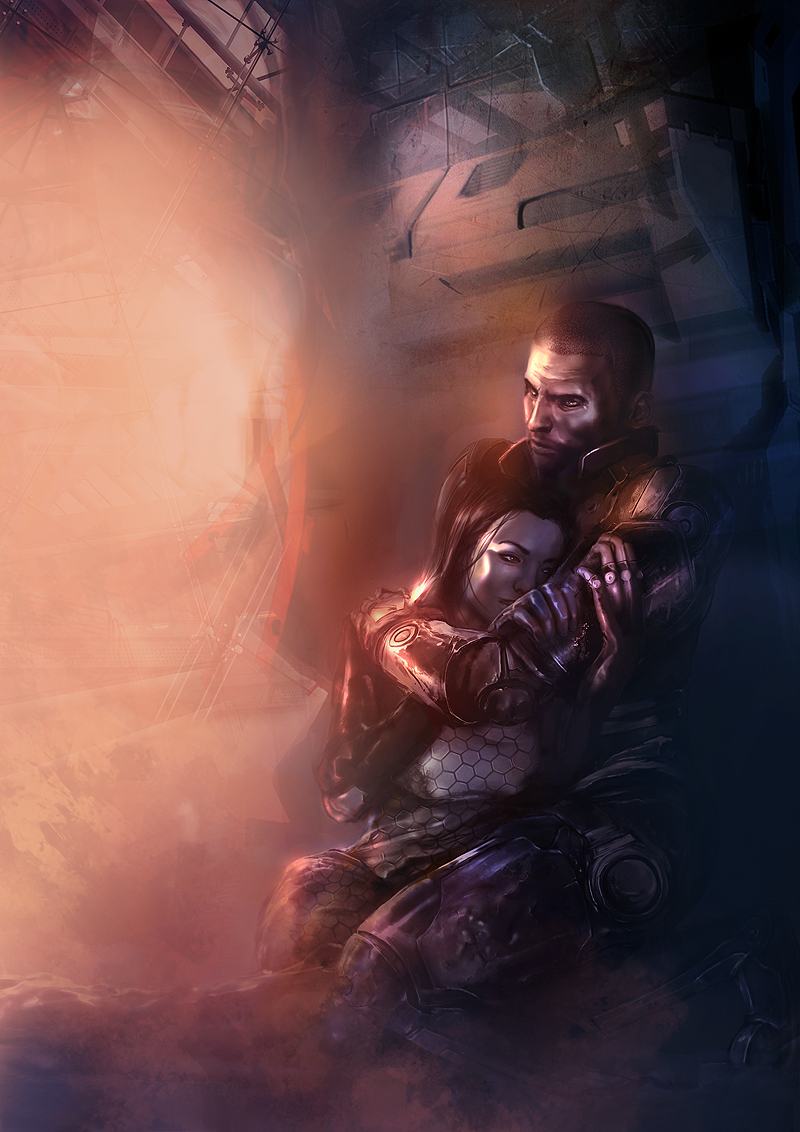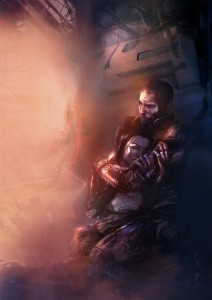Take a moment to consider any emotionally intense film you’ve ever seen. Think of the war movies like We Were Soldiers and Saving Private Ryan and how they made you feel when the credits rolled. Think of Lord of the Rings, Blow, and Dark Knight. Like many, these films established an emotional connection with their viewers. Any good movie or book will attempt to do so. A mark of success for writers, actors, and directors is the moment when the audience invests a piece of themselves in a particular character or quest; they want the hero to succeed, the villain brought to justice, and things to work out as if it mattered in their own lives. Because the audience has undergone this journey with the characters in the film, in a small way they can feel a sense of responsibility for the outcome. We can see genuine psychological effects from that—real joy when the heroes succeed, deep hatred for the enemy, a sort of fluffy feeling when the couple you were rooting for finally gets together.
Let’s take that a step further and give the audience real responsibility for the outcome. Aside from it happening in reality, the only way to do this is through a game. And in no other game have I ever seen it done so well as I have in the Mass Effect series—a first person shooter role-playing game and space odyssey created by BioWare. Allow me to give you a brief overview of the two out of three released games so that you understand the premise.
In Mass Effect, you assume the role of Commander Shepard on a shakedown mission to recover a beacon discovered on the planet Eden Prime. There you are betrayed by the Spectre (a Galactic Council appointed operative) Saren, who is being controlled by the sentient machine ship called Sovereign to uncover the conduit—a mass relay that would allow the machine ship race called Reapers to return from dark space and destroy the galaxy. The game ends when you succeed in stopping Saren and destroying the Reaper, thus saving the galaxy. In Mass Effect 2, Commander Shepard is killed in an ambush by the mysterious alien race called the Collectors and revived by a pro-human organization called Cerberus with the horrific news that entire human colonies are being abducted by the Collectors and you’re the only one who can stop them.
Still with me? Now the first way BioWare implements player responsibility is to allow the player to create their own version of Commander Shepard—male or female, hair color, facial structure, background, psychological profile, et cetera—until Shepard becomes, in some way, a version of the player. The second step was to create a “morality system”. Similar to reputation points in other games, the morality wheel allows the player to follow two paths: paragon (good) and renegade (bad), although it is possible to be somewhat neutral. You build paragon or renegade points based on conversation responses and choices you make throughout the game. This can be as simple as being polite or rude to a character, or as heavy as choosing whether someone lives or dies. For example, in first game Shepard encounters a dreaded rachni queen—possibly the last of its species after the rachni were genocided long, long ago. She begs Shepard to free her and promises her only intention is to live in peace with her children. Shepard can free her and restore the rachni species or destroy her and end the race for good.
Such decisions always have later consequence and, while choosing the fate of a bug-like race doesn’t seem very heavy to many players, team interactions have always had the biggest effects. Shepard is allowed to talk to his or her accrued crew after every mission and establishes a deep relationship with them. During a mission on Virmire, two of the six teammates’ relationships with Shepard are changed permanently. When confronted by friend and teammate Wrex, Shepard’s relationship with him plus the paragon/renegade accumulation can allow Shepard to talk Wrex down, where he will continue with the mission; otherwise, Wrex is killed by Shepard or a fellow teammate attempting to protect Shepard. Even with a strong desire to save Wrex, the player may be unable to before he’s assassinated. Later in the mission, Shepard is forced to choose between the lives of two of her/his crew: one will be saved and the other will die. A heavy cut-scene post-mission shows the player the consequences of a hard decision. Who would have ever thought that when they picked up this game in the store, they would have a moment where they had to decide who among their friends lived or died?
In Mass Effect 2, the choices become a lot heavier and the emotional connections deeper. The great feeling of victory after a long and hard journey is quickly squashed in the opening cut-scene of the game when the player watches their ship destroyed and character shot out into space to suffocate from the rupture in their hard-suit. After Shepard is revived, the player learns they are now working for Cerberus—a pro-human terrorist organization that was a known enemy in the first game. Later, an encounter with the Virmire survivor leaves the player feeling worse than before as the survivor ultimately brands you a traitor. No matter how much good the player character attempts to do, he or she is met with rejection and disapproval at every angle.
Toward the end of the game, the player watches as everyone in his or her crew but the pilot is dragged off, kicking and screaming, by the Collectors. Shortly after, the segue into the last mission puts the player and his crew into what is ultimately described as the “suicide mission”. If the player did not upgrade his ship accordingly, up to three crew members will die during that suicide run. Once through, Shepard picks team leaders for the final task. If the right crewmates were not chosen and their loyalty not secured, they will also die during the course of the mission. When Shepard rescues the kidnapped crew, he or she must first watch one of the abducted colonists be melted down as fuel. If Shepard did not race through the relay to rescue her kidnapped crew fast enough, Shepard will watch a crewmate die instead of the colonist. It is a gruesome and horrifying fate, and it is difficult to watch.
The survivability of Shepard’s team is based solely on the player’s decisions throughout the game and, in those moments when Shepard holds a dying comrade in his or her arms or watches as one of the team is carried off by violent Collector swarms, a deep sense of responsibility sticks into the player’s consciousness. After thirty plus hours of game play, the connections to the characters around you feel real. It is possible to end the game with everyone in Shepard’s crew dead, and Shepard, too, will die. Only a few may be lost. Or, Shepard could manage to save everyone. The choice is up to the player.
What does this mean? Because it’s “just a game”, we can disregard any real psychological trauma, if we can even call it that with a straight face. Truth be told, however, the feelings a player can walk away from this game with are very serious because the detachment seen in books or movies was taken away when the responsibility was literally placed in the player’s hands. What does this say about the player who let everyone die? It’s true that many gamers went through Mass Effect with a nonchalant disregard for the story because they merely wanted to shoot things. However, when played to be truly experienced, it’s impossible not to care about what happens in the game and who it happens to—regardless of the fact that it’s just pixels.
Mass Effect is heavy. It puts in the player’s hands the responsibility of saving the galaxy and the lives of fellow comrades. It forces players to deal with the consequences of making hard decisions and rewards their morality in ways not always easy to deal with. So what does this mean? Who knows, but Mass Effect 3 is going to be great.
Mass Effect,




